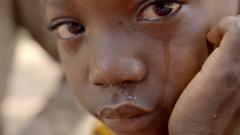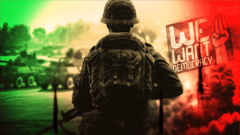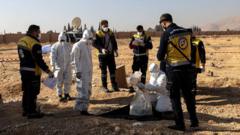In a remote village of Northern Kaduna state, the sorrow from a tragic incident last year lingers as families grapple with grief after a military drone strike mistakenly targeted a sizable open-air religious festival. On December 3, 2023, the community suffered the loss of approximately 85 lives, including that of seven-year-old Habeebah, the daughter of a local Islamic school teacher, Masud Abdulrasheed. The military has since attributed the bombing to a "failure of intelligence," a stance which has failed to bring solace to the devastated families.
**Drone Strike Tragedy: Communal Grief in Tudunbiri Following Military Error**

**Drone Strike Tragedy: Communal Grief in Tudunbiri Following Military Error**
Residents of Tudunbiri village face the aftermath of a devastating drone strike that killed dozens, including children, during a religious festival last year, leading to calls for justice and accountability.
As survivors share their heartbreaking stories, the scale of the tragedy unfolds — Aisha Buhari, a twenty-year-old villager, lost three brothers in the strike and sustained a serious injury herself. Both Abdulrasheed and Buhari reflect on the unbearable pain of their losses, highlighting the enduring trauma of the event on their community.
Despite the sorrow, the villagers have continued to hold their annual festival, this time honoring their lost loved ones while also inaugurating a newly constructed mosque on the site of the bombing, a gesture symbolizing both remembrance and resilience. However, as local officials promise reparations and future support for the impacted families, many inhabitants report that their essential farmlands have been seized for development projects, compounding their grief with economic hardship.
Amidst promises from state officials for compensation and acknowledgement of the tragic event, victims express skepticism regarding the government’s accountability and action. Compensation payments have been made, but survivors like Ms. Buhari and Mr. Abdulrasheed emphasize that no amount of money can fill the void left by their losses. They retain hope that a genuine reckoning will prevent further tragedies and provide necessary support for healing and rebuilding their lives.
As Nigeria's military continues to confront security challenges in northern regions, the lessons from Tudunbiri stand as a pressing reminder of the costs of miscalculated military actions and the human lives intertwined with the struggle against extremism.
Through ongoing dialogues and community engagement, the goal remains to ensure that such painful errors are not repeated, as the families and survivors of Tudunbiri seek peace, justice, and a future unburdened by the memories of tragedy.
Despite the sorrow, the villagers have continued to hold their annual festival, this time honoring their lost loved ones while also inaugurating a newly constructed mosque on the site of the bombing, a gesture symbolizing both remembrance and resilience. However, as local officials promise reparations and future support for the impacted families, many inhabitants report that their essential farmlands have been seized for development projects, compounding their grief with economic hardship.
Amidst promises from state officials for compensation and acknowledgement of the tragic event, victims express skepticism regarding the government’s accountability and action. Compensation payments have been made, but survivors like Ms. Buhari and Mr. Abdulrasheed emphasize that no amount of money can fill the void left by their losses. They retain hope that a genuine reckoning will prevent further tragedies and provide necessary support for healing and rebuilding their lives.
As Nigeria's military continues to confront security challenges in northern regions, the lessons from Tudunbiri stand as a pressing reminder of the costs of miscalculated military actions and the human lives intertwined with the struggle against extremism.
Through ongoing dialogues and community engagement, the goal remains to ensure that such painful errors are not repeated, as the families and survivors of Tudunbiri seek peace, justice, and a future unburdened by the memories of tragedy.






















